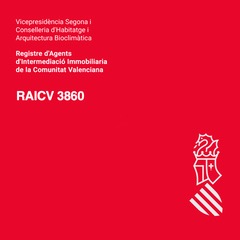
The Spanish Will: What Property Owners in Spain Need to Know
More and more foreigners are choosing to buy a home in Spain, particularly along the beautiful Costa Blanca. Whether it's for a second residence, an investment property, or a permanent home: owning real estate in Spain warrants consideration of the legal and fiscal aspects of inheritance. One of the most significant of these is the Spanish will.
In this blog, we explain what a Spanish will specifically governs, whether it is mandatory, how it works with the inheritance laws of your home country, and what is essential to include.

Is a Spanish will mandatory?
No, a Spanish will is not mandatory, but it is highly recommended for foreigners who own property in Spain.
Without a Spanish will, your estate in Spain will be handled under international inheritance laws, which in practice leads to delays, higher costs, and potentially legal complications.
A Spanish will makes the settlement of your estate much simpler, quicker, and cheaper for your heirs.
What does a Spanish will govern?
A Spanish will determines what happens to your assets located in Spain: like your home, bank accounts, or other assets.
The will is formalized by a Spanish notary and registered in the Central Wills Register (Registro de Últimas Voluntades).
Important to know: this will applies exclusively to your assets in Spain. It can coexist with a will in your home country – as long as the two do not contradict each other.

Which inheritance law applies?
Since the enforcement of the European Inheritance Regulation (EU Regulation No. 650/2012) in 2015, in principle, the law of the country where the deceased had their last habitual residence applies.
However: if you live in Spain or own assets there, you can explicitly declare in your Spanish will that you wish for the inheritance law of your nationality to apply.
This is crucial. In countries like Belgium or the Netherlands, you can freely choose who receives your inheritance. In Spain, however, inheritance law is more strictly regulated and has a fixed distribution, where children automatically have a right to a large portion of the estate.
By choosing the inheritance law of your home country, you retain more flexibility over your estate.

What is essential in a Spanish will?
A well-drafted Spanish will contains among other things:
- A clear reference to the applicable national inheritance law
- A listing of your Spanish assets (as far as known)
- The appointment of heirs
- Optionally: the appointment of an executor or a representative for settlement
- A statement that this will pertains only to your Spanish assets (to avoid conflicts with other wills)
The will is drawn up in Spanish and possibly a second language (like English or Dutch) and is signed at a notary in Spain.
Extra tip: inheritance tax in Spain
Inheritance tax in Spain varies by region. On the Costa Blanca (Province of Alicante, Region of Valencia), there are attractive exemptions for direct family members, but it's important to get well-informed. In some cases, heirs may still face unexpected costs.
With a good will and timely planning, you can minimize fiscal impact.

Conclusion: get good advice
A Spanish will may not be legally required, but for foreign property owners, it is an indispensable step to settle your estate correctly, efficiently, and according to your wishes.
It provides peace of mind – for yourself and your loved ones.
Need assistance with drafting a Spanish will?
We work with reliable, multilingual notaries and legal advisors on the Costa Blanca. Feel free to contact us for a no-obligation conversation
Spanish will inheritance law in Spain inheritance tax Spain will Spain mandatory




















